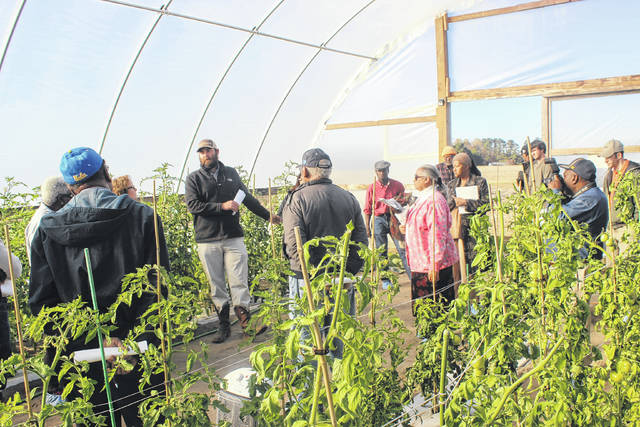For 69 hours, the United States faced a government shutdown after Democrats and Republicans were unable to reach a deal on a spending bill.
According to local officials in Sampson County, the issue had a minimal effect on local agencies.
“Most of the federal dollars that are received for the provision of services for county citizens flow through the state first, so impacts are, for lack of better description, secondhand,” said Susan Holder, assistant county manager for Sampson County.
The issue in Washington, D.C. started after the bill did not get enough support from Democrats, who like to see a plan to protect 700,000 young immigrants, known as “Dreamers” from deportation. A temporary deal was reached and will keep the federal government running through Feb. 8. According to reports, if a deal is not reached for the people enrolled in the Deferred Action for Childhood Arrivals program, Senate Majority Leader Mitch McConnell (R-Kentucky), said he would allow immigration legislation to be brought up for a bipartisan solution. President Donald Trump ended the program in the fall.
Holder reported that the United States Department of Agency/Farms Services Agency notified county officials of the temporary closure. The county discontinued contracted services in a building space provided by the county.
Following the shutdown, another agriculture department was effected for a short period of time. The National Resources Conservation Service (NRCS) is partially funded by the federal government. Some county funded positions are in the office too. Melanie M. Harris, department head and senior soil conversationalist, said operations were briefly effected.
Three NRCS federal employees from the National Resource Conservation Service were sent home, while four county employees continued to work. NRCS shares space with the Sampson County Soil & Water Conservation District.
“We all do the same thing, but we get paid by different entities of the government,” Harris said.
Harris reported that they were unable to use equipment such as survey equipment, copiers because of the shutdown. When the government shuts down, Harris said they did not have access to emails or other important needs.
“We couldn’t use federal vehicles (Monday) or use our computers,” she said. “So pretty much county employees had to come win with a personal computer and try to work the best they could.”
She reported that the county does not provide vehicles, so they would have to borrow from Sampson officials to help people with services. Another alternative would be to drive a personal vehicle.
Local NRCS employees returned to their duties Tuesday.
“If it was longer than a day, it probably would have effected us a lot more,” she said.
Like many others throughout the United States, she hopes U.S. legislators come to agreements beyond the first of February.
During shutdowns, it was reported that Sampson County Department of Social Services (DSS) would face minimal impacts during such periods.
“This is mainly because our main, core services are labeled by the government as essential and those are basically exempt,” said Director Sarah Bradshaw about programs such as Medicaid, child support services, and the Work First Family Assistance program, which helps needy community members.
The majority of the mandated services come from federal money and grants. Other programs fall under discretionary spending. Some of them include child and welfare services. Bradshaw said officials will keep an eye on the programs, if the shutdown resumes after Feb. 8.
“You still have essential services,” Bradshaw said. “No state is going to let your child protection programs go unfunded. You can’t just sit around and not take calls for abuse and neglect.”
Bradshaw emphasized that state officials would communicate with the Sampson DSS if a shutdown continued for a long period, to keep services afloat.
“The state will shoulder some of those federal funding issues,” she said. They’ll work within the means of what they have to keep local government operations going.”
One example of an essential program that Bradshaw feels is safe is the Children’s Health Insurance Program (CHIP)/NC Health Choice Program, which provides health assistance to low-income youths.
“The (program) is the main program for us that we have been concerned about for several weeks now, but it appears there is agreement to reauthorize it for six more years,” Bradshaw said.
Like many Americans, Sampson County officials and citizens will continue to keep an eye on budget developments coming out the nation’s capital.
“Let’s hope this is settled so we can move on,” Bradshaw said.

